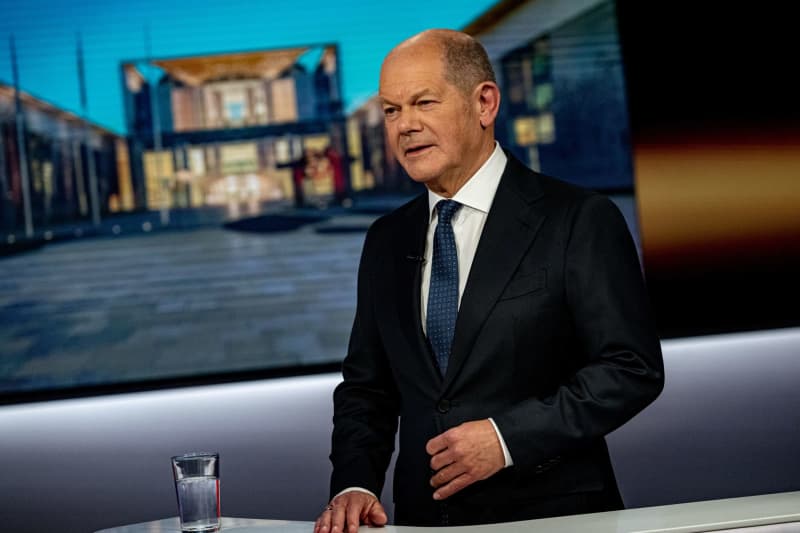It is a tough market for jobseekers, but spare a thought for ex-Tory MPs in particular. Six months on from Labour’s thumping victory in the general election, many of those who lost their seats are still looking for work.
“I’m beginning to talk to more and more colleagues who are in career distress, who are simply just not getting interviews,” says Sir Charles Walker, the former MP for Broxbourne, Hertfordshire. Sir Charles, who spent nearly two decades in Parliament, is among those struggling to find work and says he has made just £575 in the past six months. “Five-hundred pounds on election night for a slot on ITV that was cancelled, but they very sweetly paid me, and £75 for appearing on [Radio 4’s] Broadcasting House,” he says.
“I am very lucky, I’m in my later years, I have some financial resources I can fall back on – I took my House of Commons pension early. But it’s not going to last forever,” Sir Charles continues. “It is like an out-of-body experience to go from a 12-year Select Committee chair, four years on the Board of the House of Commons Commission, overseeing budgets of hundreds of millions and staff of thousands, to not having a lot to do every day.”
The shift from Parliament to unemployment is both swift and brutal. It is not only the salary of £91,000 (ministers are paid up to £67,000 more) disappearing almost overnight – save for the “loss of office” and “winding up” payments given to outgoing MPs, amounting to about four months’ salary – but the loss of colleagues, a career, and a sense of identity.

Vacating the Commons can be genuinely traumatic, according to the Association of Former Members of Parliament, which said in written evidence to Parliament in 2022 that members struggle to adjust to life away from Westminster and, for some, “the psychological effect and trauma of losing their seat”.
ADVERTISEMENT
“I’m talking to colleagues in their 30s who are becoming terribly depressed,” says Sir Charles. “And these are really, really good people who could make a difference in most organisations and would work hard to prove themselves, they just need a chance. And they’ve held really senior positions – I know former ministers are struggling to find work.”
A 2006 study on the experiences of former MPs recognised that, while the public might have limited sympathy, the loss of a parliamentarian’s vocation led to a period of grieving with the same feelings of shock, anger and shame as might accompany a bereavement.
On the eve of last year’s election, many of the class of 2024 would have known their time was up. But for others – one former prime minister among them, perhaps – defeat would have come as a nasty surprise. So, they packed their offices into cardboard boxes, dusted off long-neglected CVs, and set about finding gainful employment. But in today’s job market – troubled by cuts and falling numbers of vacancies – they are discovering that, more than ever, their parliamentary experience does not translate.
A career transition scheme was planned to offer last year’s “non-returned members” career coaching and assistance with polishing their CV. A trawl of LinkedIn shows how many ex-Tory MPs are jobseeking. Theresa Villiers, the former MP for Chipping Barnet, has a profile that says she is “exploring a new career in the academic and business worlds… seeking new opportunities – university roles, non-executive directorships and advisory/consultancy”. Flick Drummond, the former MP for Meon Valley and Portsmouth South, simply lists her job title as “unemployed”.

Chris Clarkson, who was MP for Heywood & Middleton, says he is available “immediately, I am actively applying”. And Dame Jackie Doyle-Price, an MP for 14 years, recently shared a Telegraph article on a civil service jobs row, writing: “Age discrimination is alive and kicking in the job market. It is something that everyone experiences and yet it is the protected characteristic that is talked about the least… Sending all good wishes to everyone over 50 looking for work.”
ADVERTISEMENT
“I think what’s missing and what’s adding to the difficulty to a lot of MPs looking for work is we’ve allowed MPs to be so diminished in terms of their reputation that that honourable side of our work is going ignored, and the fact we bring a diverse set of skills,” Dame Jackie says.
“It does always amuse me when you hear MPs ‘don’t live in the real world’. Well actually we do, and we all take that risk and we do it because it’s a calling.”
Calling or not, some are finding that, in today’s corporate world, the party politics of a former Tory MP are more of a hindrance than a help. The first question Peter Gibson, the former MP for Darlington, was asked in a recent informal interview for a non-executive role, was “What would it be like to have a Conservative on the board?”
“There is a unique aspect to applying to a job when you’ve been a public figure,” Gibson says. “Every word you have uttered is there on the record, and people know your political views. In a [normal] job interview, it would be unusual to be asked how you vote and what political party you support.” No wonder some head straight back to the haven of CCHQ – former housing and planning minister Rachel Maclean is now Kemi Badenoch’s director of strategy.
Sir Charles explains that the prejudices some employers have about erstwhile parliamentarians “are making life very difficult for some colleagues, some of whom were backbenchers, well-known in their communities, and others who had a high profile”.
ADVERTISEMENT
He continues, “I thought I had a couple of board jobs to go to, but they did not materialise post the general election result. Fortunately my 19 years as an MP has taught me how to deal with disappointment.”
Eventually, this will deter prospective MPs from standing in the first place, Sir Charles says. “You’re always going to have enough good people wanting to stand, but if you have a successful career it is just a huge risk to step out of it to enter Parliament. Unless we address this cliff edge, we’re going to find it really hard. The current system is almost deliberately designed to work against getting better MPs.”

Finding a job in the usual industries open to ex-MPs is one thing – some will eventually join the ranks of former politicians in communications, public affairs, consultancy or, in the case of Sir Jacob Rees-Mogg, documentary-slash-reality television. But breaking back into the public sector is harder still. Former Stoke-on-Trent North MP Jonathan Gullis was a teacher before he became an MP. He has said he cannot get a job now he’s lost his seat, which has a knock-on effect on his wife and two children, aged four and two.
“I’ve applied for a few jobs and sadly not even had an interview yet,” he said in a radio interview in September. “So actually, I think the days when being an ex-MP was something that was wanted or desired are no longer, as I think we’re now seen as a problem. And so that’s a challenge.” Asked if he thought that was due to his politics, he said: “When I left the profession to enter parliament, I felt being a Conservative was something that was treated with disdain.” Post-parliament, he added, he could not work in education because there are “too many activists in the classroom”. As of January, he is still looking for a full-time role.
ADVERTISEMENT
“It’s a competitive market where I will be up against many of my former colleagues and former special advisers, some of whom will have expertise in certain fields and some of whom have come from the corporate world,” he says.
“However, no ex-MP should ever expect sympathy and nor should any ex-MP ask for it. You’ve had a privileged position and an amazing opportunity. The key for ex-MPs is to explain their skill set and what it has to offer for a company. At the same time, business itself needs to be open-minded as to what MPs can offer and be willing to hear people out.”
For Gullis there is a silver lining, he says. At least he’s home to help with homework and read stories at bedtime.
EMEA Tribune is not involved in this news article, it is taken from our partners and or from the News Agencies. Copyright and Credit go to the News Agencies, email news@emeatribune.com Follow our WhatsApp verified Channel




